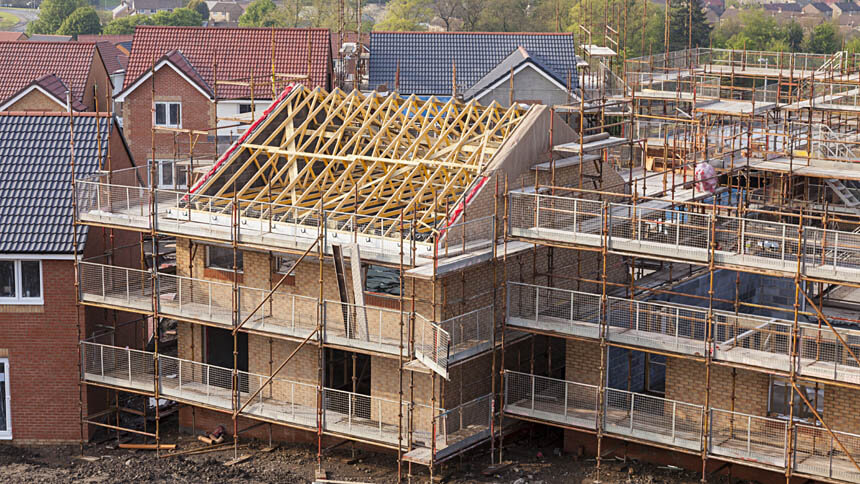The Royal Institution of Chartered Surveyors (RICS) UK Construction Monitor for Q4 2022 demonstrates the impact of the challenging macro environment on the sector, with construction workloads at the all-sector level flat-lining.
Within this overall figure, infrastructure continues to show a more positive trend supported by major energy and transport projects.
This quarter, headline workloads (workloads across all sectors) dropped to a net balance of -1% according to respondents to the survey, compared to +17% in Q3 and +30% in Q2 of 2022.

The most significant contributor to the turnaround in the trend from positive to negative, comes from the private housing sector, where workloads slipped to -13% against +17% in Q3. Other components of the private development sector were also a little flatter this quarter with the metric for commercial and industrial also turning very slightly negative (net balance of -2%). The contrast to this is provided by the infrastructure component where the workload trend remains more upbeat reflecting the longer-term nature of many of these projects (+22%).
Regarding the industry's crucial challenges, respondents continue to emphasise shortages of both labour and materials. However, while the number of respondents highlighting these factors are beginning to decline, the proportion identifying financial constraints as an obstacle has now risen for four consecutive quarters to reach 62% - the highest level since Q3 2020. This pattern is also evident in insights about credit availability in the industry. A net balance of 46% indicated that credit conditions had worsened over the past three months, with a similar amount anticipating a further deterioration over the next three months.
Looking forward through 2023, a net balance of 35% believes credit conditions will be tougher than they currently are, which, while significant, is some way off the 60% that took this view in the prior quarter.
Meanwhile, the macro woes are beginning to manifest themselves in the share of respondents pointing to inadequate demand; this has climbed to 28% which, although still low by historic standards, is the highest level since the midst of the Covid pandemic. Anecdotal remarks from contributors also continue to focus on concerns around the planning system.
While workload activity is down across the board, it is interesting to note that recruitment in the sector remains both positive and challenged by skills shortages. A net balance of +35% of respondents reported having recruited employees over the past three months, with +15% indicating they intend to do so over the next twelve months. The ongoing shortage of skills appears as prevalent among the trades as among professionals. More than 50% of contributors report difficulties in hiring quantity surveyors and other construction professionals, including project managers. Meanwhile, a broadly similar share point to problems is sourcing bricklayers, electricians, and plumbers. Perhaps unsurprisingly, in view of this, there is still a focus on committing investment to workforce development and training, even if this is a little less so than previously; a net balance of +17% of respondents plan to increase spending in this area, down from a recent high of +37%.
The headline net balance metric for profit margins over 2023 has softened again to -26%, the most negative number since Q3 2020. Skilled labour costs are still viewed as likely to increase by around 7% in aggregate, reflecting the challenges around recruitment.
Simon Rubinsohn, Chief Economist at RICS, said: "While the more challenging macro environment is beginning to impact parts of the construction sector, it is noteworthy that the forward-looking metrics even in the area of private residential development remain relatively resilient for now with housing workloads only seen as likely to slow modestly over the next year. Meanwhile, a series of significant energy and transport projects are continuing to support infrastructure workloads.
“Significantly, the industry is continuing to grapple with the challenge around finding adequate supplies of skilled labour, both at a professional and trades level.
“Addressing this issue will be critical in enabling the sector to play a comprehensive role in supporting the economy as it emerges from the current downturn."




















